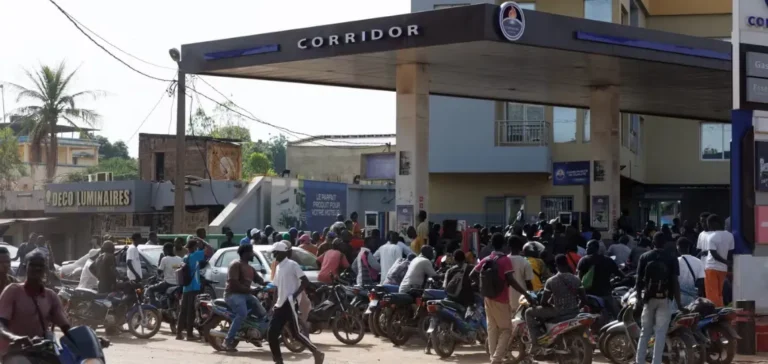Fuel supplies in Mali have been severely disrupted by a month-long blockade imposed by the Group for the Support of Islam and Muslims (JNIM), an Al-Qaeda affiliate. The group is targeting tankers entering from neighbouring countries, primarily Senegal and Côte d’Ivoire, which serve as the main import corridors for the landlocked Sahel state.
Logistics routes under attack
JNIM has specifically targeted fuel trucks in retaliation for a government-imposed ban on rural fuel sales outside official stations. The restriction was intended to limit militant access to fuel, but has triggered a series of deadly ambushes. Several drivers and soldiers have been killed or abducted, and dozens of vehicles have been destroyed on key transit routes.
Despite military escorts, the National Office for Petroleum Products (Office national des produits pétroliers, ONAP) confirmed that its strategic reserve—designed to cover three days of national consumption—is now exhausted. The agency reports no clear timeline for restoring supply flows.
Bamako hit by fuel scarcity
Once prioritised for deliveries, the capital Bamako is now facing the same shortages affecting rural areas. Queues of vehicles form daily outside the few service stations still in operation. Industry officials say they can no longer guarantee regional distribution and are focusing efforts on maintaining supply to the capital.
Fuel is now being delivered sporadically, with tankers only departing under military escort. The irregularity of these operations is further disrupting forecasts and weakening the distribution chain.
Immediate impact on electricity and trade
Mali’s dependence on thermal energy has amplified the effects of the blockade. National utility Energie du Mali has reduced electricity supply to six hours per day in some areas, down from nineteen. In other towns, power generation has stopped entirely due to a lack of fuel for generators.
Economic consequences are visible in localities such as Mopti, Ségou and San. Merchants report spoiled perishable goods and declining sales. With no clear date for supply restoration, residents queue as early as 6 a.m. in hopes of obtaining fuel by mid-afternoon.
Price controls and market speculation
Amid rising prices at service stations, the Bamako public prosecutor has launched investigations into alleged price speculation and misinformation. Transitional authorities have extended military convoy support and implemented price monitoring at retail outlets.
Liquefied petroleum gas is also becoming scarce in Bamako, according to social media reports. Distribution networks remain under strain with little indication of relief. The Prime Minister reiterated the government’s commitment to securing fuel deliveries despite logistical and security challenges.






















